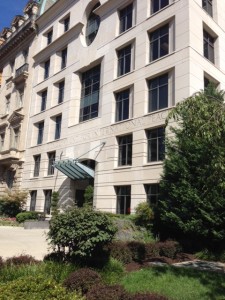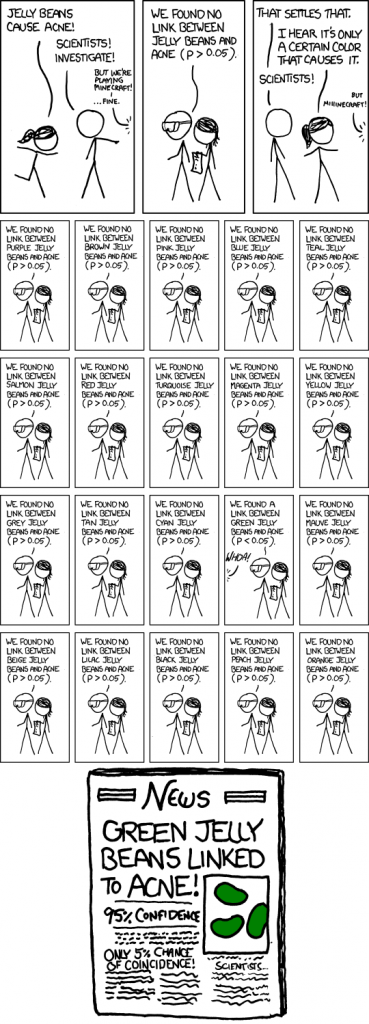26 September 2014
Dead Rat Journalism, and The Ethics of Communicating Scientific Uncertainty
Posted by Dan Satterfield
I spent all day Monday (and part of Tuesday) at the Carnegie Endowment for International Peace in Washington, attending a seminar on the ethics of communicating scientific uncertainty. It was hosted by the Environmental Law Institute with funding from the National Science Foundation, and it brought together a diverse group of lawyers, journalists and scientists. I was one of two meteorologists invited (Jason Samenow of the Washington Post being the other) and Climatologist Dr. Judith Curry was also there, along with scientists from other fields like toxicology etc. The Associated Press Science writer Seth Borenstein also spoke (before heading to New York to cover the UN Climate Summit). Seth is considered one of the premier science journalists in America, especially by those who work in the science field. Accurately telling a story for a general audience about any aspect of science is not easy, and experienced science journalists like Seth are becoming ever more rare as newsroom staffs shrink. There are still some excellent science journalists out there who can simplify a complex story without misleading the reader, and many of them belong to the SEJ- the Society of Environmental Journalists. Increasingly however, the person sent to cover a complex scientific story or issue is a general assignment reporter who has almost no knowledge of the subject, and this often leads to what some call “dead rat” journalism. You may not know what it is but believe me you have seen it often! Dead Rat Journalism Dead rat journalism frequently causes stories about climate change to smell badly before the newspaper is wrapped around a dead fish. Here is an example: A reporter interviews a scientists about how much sea level will rise over the next century, and then in an attempt to “find balance” they get a quote from a local politician who says “it’s all “exaggerated propaganda”. The reporter claims to have covered both sides of the issue and off the story goes to the press, or the web. Is this ethical? Most journalists say no, and I can tell you nearly all scientists will say no as well! The reporter here is leaving a dead rat on the doorstep of the reader, and implicitly telling them to figure out what to do with it! A court reporter or a stenographer can capture both sides, but journalist are there to seek out the truth. Finding another scientist who disagrees would be great, but if that scientist is one of a very tiny minority of opinion, there would be an obligation to make note of that in the story. Do most general assignment reporters know enough about the subject to have a feel for the strength of the consensus on a particular issue? I seriously doubt it, and there are many issues where there is actually a fairly high consensus among scientists, like the threat of Ebola in America, cell phones and cancer, and the danger of mobile devices on aircraft. Most trained science journalists know this but I suspect few general assignment reporters do. The BBC is just one of several news organizations that have been criticised for dead rat journalism, and in their case it has led to significant policy changes. While those who distrust scientists may claim bias, the obligation to present information unclouded by unimportant issues is vital. When we do stories on the anniversary of the Moon landing, do we go interview your crazy cousin who thinks the whole thing was an elaborate hoax? Are we being biased by not doing so? Your crazy cousin thinks we are, but most folks do not. Ethics Vary Across Professions Attorneys are supposed to act as advocates for their clients, and cherry picking facts to make their side of an issue look good to a jury is not nearly as unethical to their practice, as it would be to a journalist or a scientist. As one attorney put it to me, “there is an obligation to be truthful to the tribunal, but in an adversarial system, it is a far greater failure to not put your client in the best light possible. This makes sense to me, but it gives you an idea of the issues that were discussed at the seminar. In science, cherry picking is a big no-no! In fact it can ruin your reputation. Climate science skepticism online endures by picking cherry trees clean, but the goal in real science is always otherwise.
Scientific Illiteracy A large problem with ethics and science communication is how the public itself perceives uncertainty. The public does not understand probability. Think I’m wrong? Go to the local convenience store, and watch how many people buy lottery tickets! As a mathematician once told me, “the lottery is a tax on the mathematically illiterate”. To some people, a government agency that releases a prediction with the inherent uncertainty noted, is trying to hide something, or cover themselves! To a scientist, it would appear inherently truthful! We see this in climate science as well, with uncertainty being used as an excuse to not consider solutions, while in reality the uncertainty itself is a reason to increase the risk. Consider a Kansas farmer, who is told that the climate he has always expected is now changing. How much will it change he asks, and the answer is given along with a measure of the uncertainty. The uncertainty itself is an added risk to his ability to make a living and something he must now consider. While the majority of members of the Science Committee in the U.S House of Representatives will not admit to such settled science as biological evolution, and the age of the Universe (much less the fact that carbon pollution warms the atmosphere), the insurance companies (and the U.S military) are already way ahead in figuring out the risk associated with a changing climate. Insurance companies know that risk is the probability of loss multiplied by the monetary amount at stake. Is this a classic case of finding truth by following the money instead of living inside the bubble of a political worldview?




 Dan Satterfield has worked as an on air meteorologist for 32 years in Oklahoma, Florida and Alabama. Forecasting weather is Dan's job, but all of Earth Science is his passion. This journal is where Dan writes about things he has too little time for on air. Dan blogs about peer-reviewed Earth science for Junior High level audiences and up.
Dan Satterfield has worked as an on air meteorologist for 32 years in Oklahoma, Florida and Alabama. Forecasting weather is Dan's job, but all of Earth Science is his passion. This journal is where Dan writes about things he has too little time for on air. Dan blogs about peer-reviewed Earth science for Junior High level audiences and up.